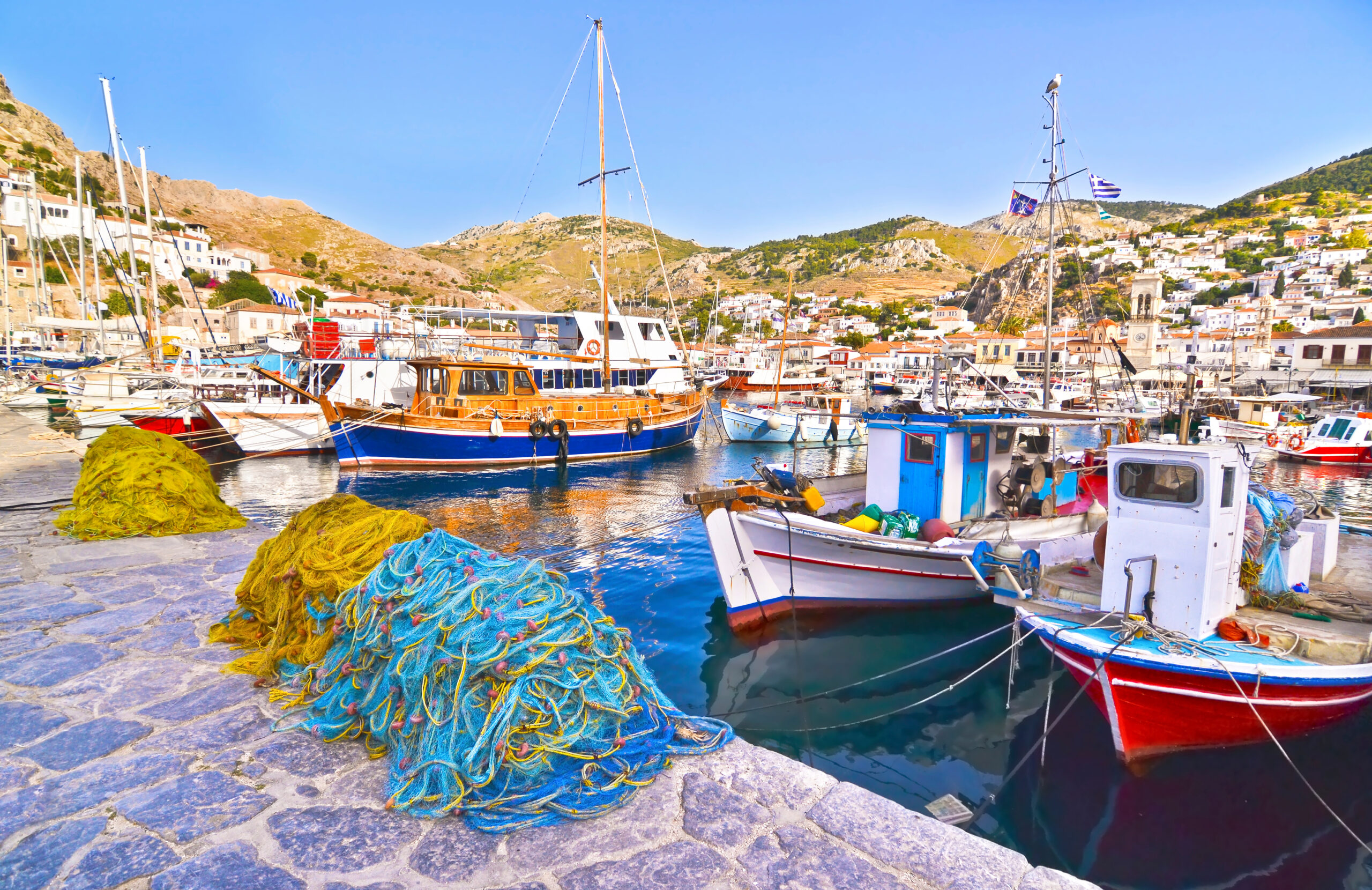Greece aims to be the ‘first in Europe’ to ban bottom trawling in marine protected areas as part of 21 initiatives worth 780 million euros.
Greece has the longest Mediterranean coastline and plans to create two marine parks, one in the Ionian Sea and one in the Aegean Sea, along with efforts to tackle coastal pollution, Prime Minister Kyriakos Mitsotakis said at the Our Ocean conference in Greece this week.
The Prime Minister went on to say that Greece will ban bottom trawling in all of its marine protected areas (MPAs) by 2030. The EU Marine Action Plan asks countries to set out national roadmaps to ban bottom trawling in MPAs, starting with those with ecologically important seabed features by the end of 2024, and across all MPAs by 2030.
He also pledged that by 2030, Greece will reduce plastic pollution in the water by 50% and microplastics by 30% compared to 2019 levels.
More than 400 new commitments amounting to $10 billion will be announced during the conference, said a government official, speaking on condition of anonymity, Reuters reported.
Reaction from neighbours and NGOs
The plan has irritated Greece’s neighbour, Turkey, while some environmental organisations say the initiative doesn’t go far enough, noting that the country also allows environmentally harmful practices such as energy exploration in sensitive marine environments.
The conference “must not be simply an opportunity for governments to congratulate themselves for what they have said until now,” said Nikos Charalambidis, head of Greenpeace in Greece. Organisations have criticised Greece for allowing deep-sea seismic exploration for energy and mineral resources in the Hellenic Trench, which includes the deepest waters in the Mediterranean, ABCnews reported.
In more positive comments, National Geographic explorer in residence and founder of its Pristine Seas initiative, Enric Sala, reported in EuroNews, said: “This historic move – a first for Europe – brings the country one step closer to ensuring that its marine protected areas can deliver the full potential of their benefits, which range from protecting biodiversity and storing carbon to boosting the tourism and fishing industries”.
Turkey’s foreign ministry accused Athens of exploiting environmental issues to push its geopolitical agenda. Ankara responded with annoyance to Greece’s plan for a marine park in the Aegean.
“It is known that Greece has long been trying to benefit from almost every platform in the context of Aegean problems,” the Turkish Foreign Ministry said, reported ABCnews. “Despite the recent softening in our relations, it appears that Greece is exploiting environmental issues this time.”
New report launched
To coincide with the Our Ocean conference, a new report, co-authored by Marine Conservation Society, Seas At Risk and Oceana, shows that in the seven countries analysed, 4.4 million hours of apparent bottom trawling was allowed in MPAs between 2015-2023 – equivalent to more than 500 years’ worth of trawling.
Using data compiled by Global Fishing Watch, the breadth and hours of fishing activity were calculated in Denmark, Germany, Ireland, the Netherlands, Portugal, Spain, and Sweden. The Netherlands has the highest number of bottom towed fishing hours recorded within the MPA sites studied, followed by Germany, Denmark, and Spain.
The news release from Seas at Risk said that the ‘report coincides with the release of landmark scientific advice by the International Council for the Exploration of the Sea (ICES), which shows that closing 30% of EU North Sea, Celtic Sea and Baltic Sea waters to bottom fishing would result in reductions of landing values of less than 0.1% – 6.6% per year, with considerable benefits for the marine ecosystems that underpin commercially exploited fish species.’
Tatiana Nuño, Senior Marine Policy Officer at Seas At Risk, said: “Our campaign is putting a stop to ‘out of sight, out of mind’ when it comes to what EU governments are allowing in so-called protected waters. It’s time to stop bulldozing the seabed, and to ban bottom trawling in EU MPAs once and for all.”
Nicolas Fournier, Campaign Director for Marine Protection at Oceana in Europe, said: “Today’s analysis reveals a decade-long silent tragedy hitting EU seas and fishers – most countries are ignoring EU nature laws, with impunity, by allowing the most destructive fishing practices in the most sensitive and protected waters. The EU Marine Action Plan offered a path to put an end to this situation, but by defending industrial fishing interests, countries are upholding the status quo. If it is to meet its marine biodiversity targets by 2030, the next European Commission has no other option but to enforce a ban on bottom trawling in EU MPAs.”
